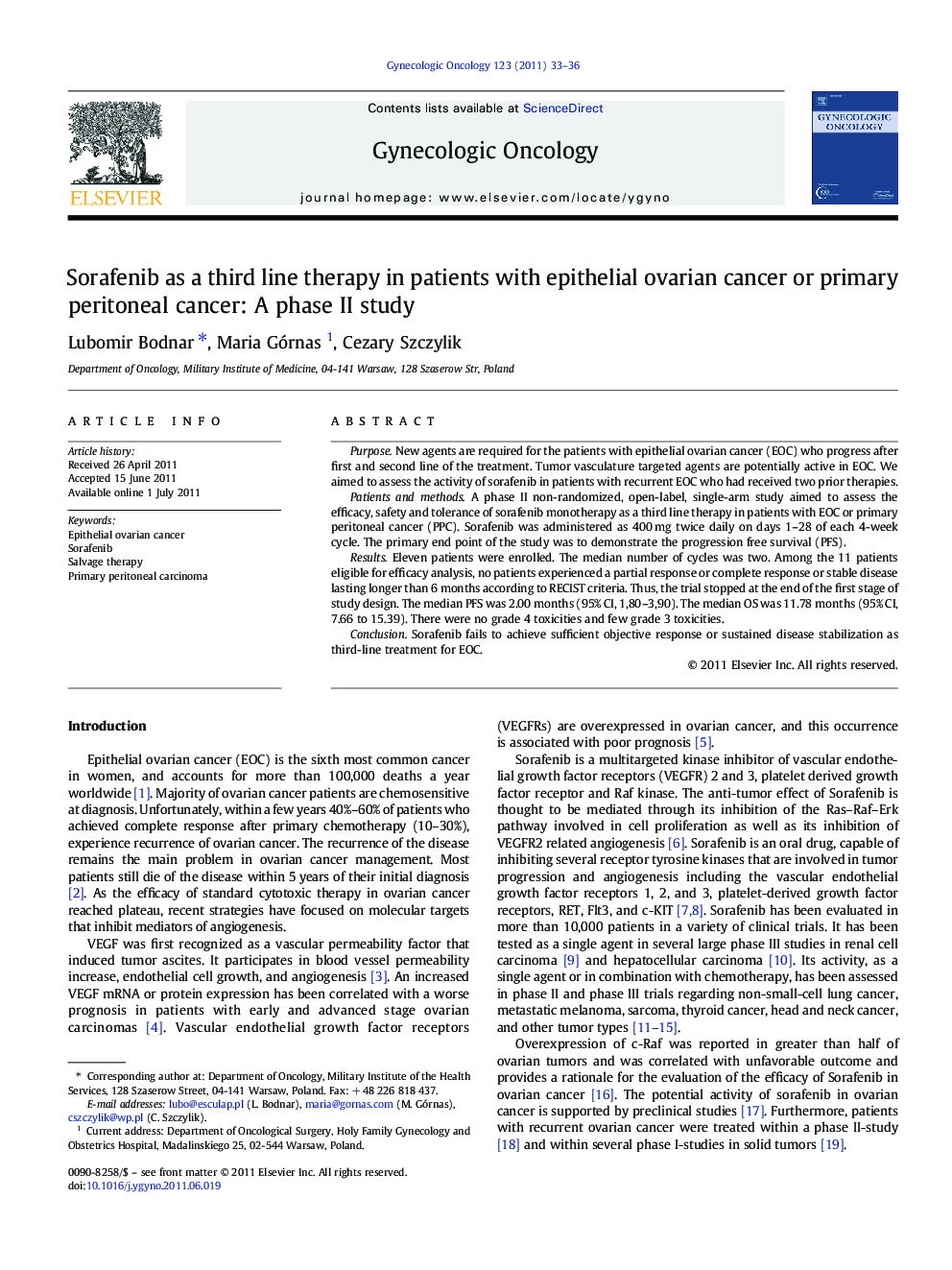| Article ID | Journal | Published Year | Pages | File Type |
|---|---|---|---|---|
| 3947030 | Gynecologic Oncology | 2011 | 4 Pages |
PurposeNew agents are required for the patients with epithelial ovarian cancer (EOC) who progress after first and second line of the treatment. Tumor vasculature targeted agents are potentially active in EOC. We aimed to assess the activity of sorafenib in patients with recurrent EOC who had received two prior therapies.Patients and methodsA phase II non-randomized, open-label, single-arm study aimed to assess the efficacy, safety and tolerance of sorafenib monotherapy as a third line therapy in patients with EOC or primary peritoneal cancer (PPC). Sorafenib was administered as 400 mg twice daily on days 1–28 of each 4-week cycle. The primary end point of the study was to demonstrate the progression free survival (PFS).ResultsEleven patients were enrolled. The median number of cycles was two. Among the 11 patients eligible for efficacy analysis, no patients experienced a partial response or complete response or stable disease lasting longer than 6 months according to RECIST criteria. Thus, the trial stopped at the end of the first stage of study design. The median PFS was 2.00 months (95% CI, 1,80–3,90). The median OS was 11.78 months (95% CI, 7.66 to 15.39). There were no grade 4 toxicities and few grade 3 toxicities.ConclusionSorafenib fails to achieve sufficient objective response or sustained disease stabilization as third-line treatment for EOC.
Research highlights► We assess the activity of sorafenib in patients with recurrent epithelial ovarian cancer. ► The trial was stopped at the end of the first stage of study design. ► Sorafenib fails to achieve sufficient objective response or sustained disease stabilization for epithelial ovarian cancer.
